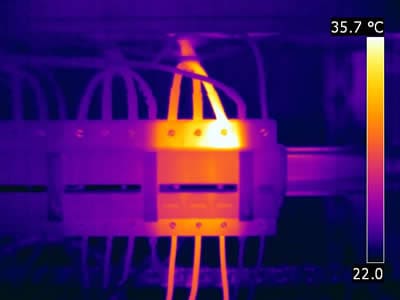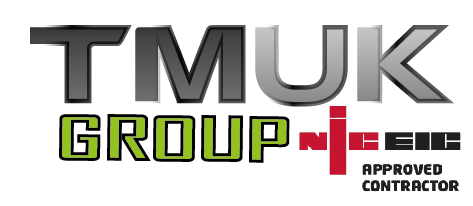What is Thermal Imaging?
Thermal Imaging, also known as thermography, is the production of infrared or heat pictures which can pick up images which are often invisible to the naked eye. Potential problems are highlighted where there is an excess of heat being released by a component, which if left undetected can result in failure and in extreme cases fire.
Thermal Imaging can detect:
Loose connections Overloads Phase imbalances Blocked or restricted cooling tubes in transformers High resistance in fuses and switchgear. Thermal imaging should not be used as an alternative to a fixed wire inspection but be used in conjunction with it as it is limited in its ability to detect all electrical faults.
Why do we need to carry out Thermal Imaging?
The Electricity at Work Regulations 1989 places a duty of care on employers to maintain electrical systems to prevent danger where otherwise it may exist. Thermal Imaging can be a valuable tool as it highlights any potential causes for concern without the need to isolate circuits. This allows corrective action to be taken before any costly system failures.
Who should carry out the work?
Thermal Imaging should be carried out by a fully qualified and experienced test engineer, such as a fully qualified electrician who has experience of test and inspection and has been trained and qualified in electrical inspection work specifically.

